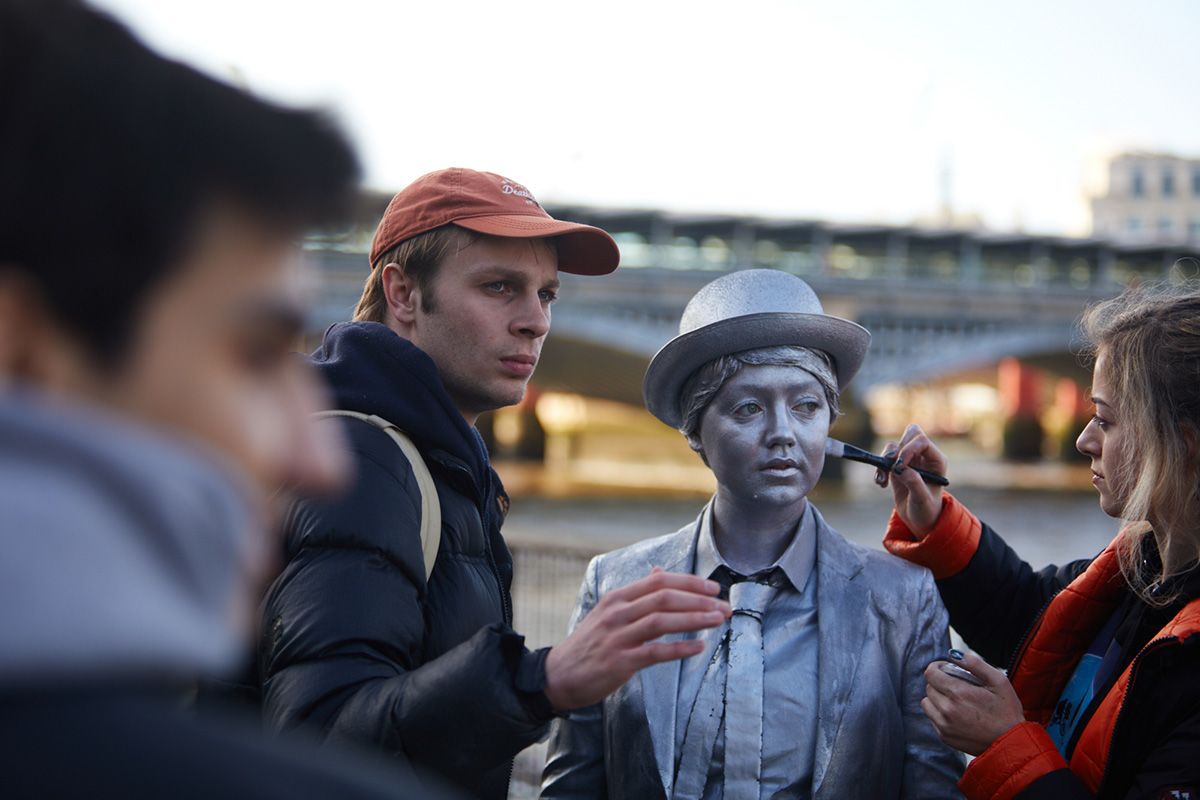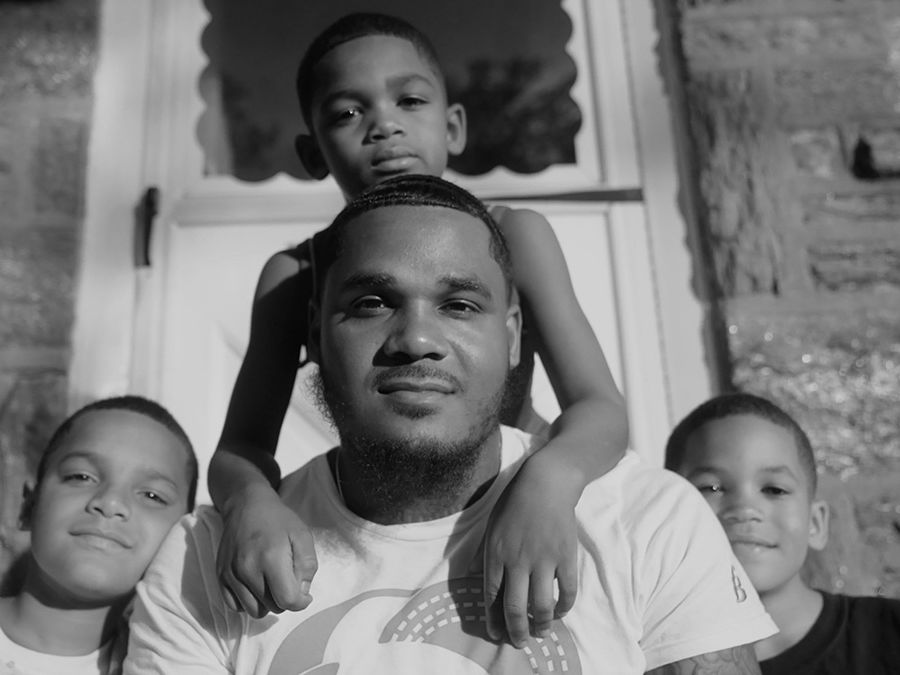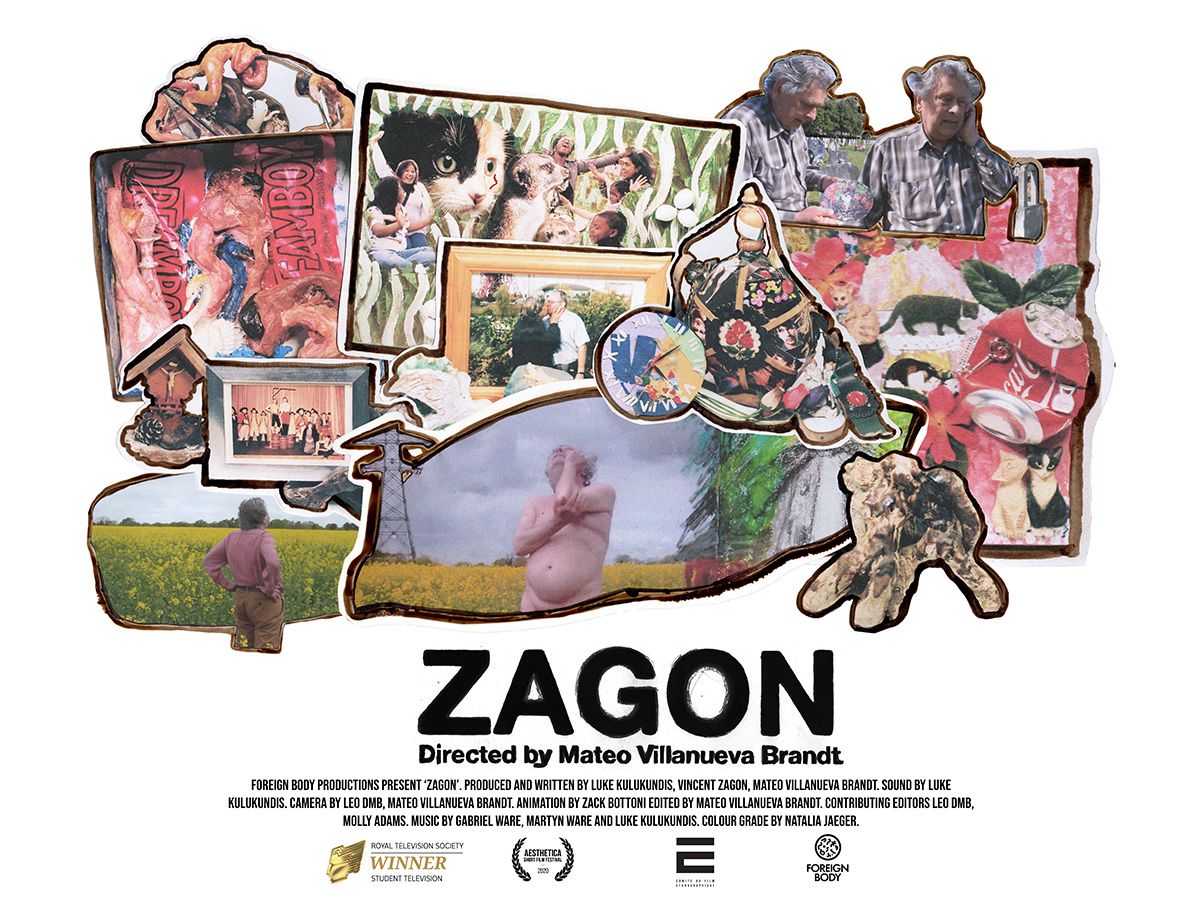
BA (Hons) Film and Television graduate recognised by Iris Prize 2021

- Written byChloe Murphy
- Published date 31 January 2022

The screen industries are continually evolving, bringing together the latest developments in technology with an increasing diversity in the stories they share. This not only encourages greater representation for audiences around the globe, but also celebrates the voices of creatives with new, unique and influential perspectives.
This ethos is shared by BA (Hons) Film and Television at London College of Communication (LCC), which enables students to explore areas ranging from experimental filmmaking to mainstream TV. Supported by tutors with extensive industry experience, they have opportunities to work across development, production and post-production processes, growing their technical skills and contextual knowledge of key movements, makers and theories that have shaped the 21st century.
In Autumn 2021, recent BA (Hons) Film and Television graduate Jack Pulford was recognised by leading film festival, the IRIS Prize, for a short film developed during his time at LCC. Silver and Gold follows the journey of a living statue who finds the courage to form connections with the wider world after a chance encounter with a potential rival, unravelling ideas of isolation and belonging against the backdrop of the London cityscape.
Selected as one of the ‘Best British 2021’, the film was then broadcast on Channel 4 in November, and is also available to watch for an entire calendar year on the popular streaming service, All4.
Established in 2007, the IRIS Prize celebrates work developed by, for, about or of interest to LGBT+ audiences. In addition to running screenings, mini events and outreach projects throughout the year, it’s also a BAFTA-qualifying festival for British film, supporting emerging filmmakers to achieve success on the international stage while providing a platform for audiences to explore some of the most exciting new work in the industry.
We caught up with Jack to discuss his experiences of exploring human connection beyond dialogue, the joy of post-production, and making a film during the uncertainty of national lockdowns.
Silver and Gold (Trailer) | Jack Pulford
Have you always been interested in filmmaking, or is this something you’ve moved towards over time?
I was always into things like art, drawing and editing when I was younger, and in secondary school, I had a friend who made short films, sketches and YouTube videos with a few others. I managed to wheedle my way in, and we started writing stuff and storyboarding together when we were supposed to be listening in our science lessons before shooting our ideas the following weekend.
This went on for a few years, and by the time we started sixth form, our films had started to grow in scale and focus more on narrative than just stuff we thought was funny.
I decided that I wanted to be a bit more educated in film: I wanted to learn theory, and study directors I hadn’t heard of, especially across areas like world cinema and other kinds of work that I hadn’t really had access to growing up. I then spent 3 years developing my craft at LCC, where I made my grad film, Silver and Gold.
Why did you decide to study at LCC?
At 18, I was determined to study film, and visited lots of Open Days at different universities. I think I was drawn to a lot of the Final Major Projects that were being shown at LCC – they made me think: ‘That’s the sort of stuff I want to do.’
I’m from Colchester in Essex and visited London a lot when I was younger, so I also think that the idea of being creative in a city known for its creativity was really exciting for me.
What sparked your idea for Silver and Gold?
I was actually on holiday with my parents and brother in America, and reflecting on what it means to be a tourist somewhere. I was also starting to miss London and thinking about the kinds of attractions that appeal to tourists there, before ending up at the idea of living statues. I began to wonder how they would talk to each other, and an idea developed around 2 statues silently building a relationship on the South Bank.
It gradually became a bit more of a romance, and I decided not to include dialogue as a way of really encapsulating the central theme – the idea of silently waiting for people to notice you, and there being no real way for you to reach out to them. I think that really played into Silver’s sense of isolation at the beginning of the film when she’s waiting for people to come to her, and then her overall journey as she realises that she has to go out and pursue the stuff she wants to do - breaking the metaphor to achieve the connection she really longs for.

Tell us about the creative process behind your film.
I think the idea first originated in mid-August, and we pitched the project in September. As soon as the concept became more solid, it began developing into a romance, and by December, the film had been green-lit. Our producer, Doug [MacDowall], came onboard and everything escalated, really – we just fully went for it.
We had lots of crew coming in and out, including students on our course who were also going off to make their own films, and others from London College of Fashion and Central St Martins. I was writing the film, my friend Emilio [Pallavicino] was shooting it, and we eventually managed to bring everyone together to film over a weekend. This turned out to be a week before the first national lockdown in Spring 2020, and we were lucky enough to be one of only a couple of grad films that was able to shoot at all.
There was so much confusion over the following few weeks as everyone tried to adapt to lockdown conditions and think about how we were going to finish our degree. I decided to escape London by going to my parents’ house in the countryside, where I dedicated myself to editing Silver and Gold to the full.
I feel really fortunate that I was able to go somewhere completely different and focus all the energy I had in such a weird time into a slow editing process, which also made me realise how much I enjoy spending time in post-production – plotting out a film and seeing how it works with all the footage we’d shot. Normally, films change quite a bit at this stage for me anyway because I like to keep my options open during a shoot, and don’t go into it thinking: ‘This is the film we’ve started to make, so it has to continue like that.’
The composer and I also built our soundtrack during this time by sending edits back and forth to each other, making sure that the pacing and the tempo worked with the film. It was a really great collaborative experience.
Surprisingly, lockdown was kind of a blessing in disguise – it was obviously an awful time, but in terms of production, it helped us out a lot. Normally, you’d have to submit your grad film in May, and then you’d graduate and move onto your next project. In a way, it was quite nice to have 10 months of getting feedback and developing the project while also enjoying the process a lot more too. It wasn’t stressful at all. Sometimes, it would be a couple of weeks before I felt ready to come back to it, and this space allowed me to flesh out and explore the film a lot more.
When August rolled around, we were able to access some of the sound facilities at LCC again, so we finished up the edit, did some sound design and colour-graded before the film was finally finished in January 2021. After that, we submitted lots of early applications for festivals and had to wait over 6 or 7 months to hear back from any.
In August, we heard that we’d made it into Encounters Short Film Festival, the Iris Prize and a few others – we’ve been doing the festival circuit since then, and it’s been a lot of fun.

What were the main highlights from your experience of creating Silver and Gold?
There are quite a few! I still live in London, and there’s a surreal madness to walking across Tower Bridge and being able to think: ‘Somehow, we shot there.’ It’s the same whenever I’m near Tate Modern, or Piccadilly Circus, or outside the National Gallery. It’s nice that we all came to London to study for our degree and we shot our final film here too – it’s a showcase of all the tourist spots and attractions that make this city so unique.
As a creative and also as someone who wants to direct stuff, the process of developing Silver and Gold was a complete learning experience. Because I wrote, directed and edited the film, I was there at every point from the start to the end, and I became quite attached to it. By the time we entered post-production, I could see a lot of myself in it, and I’m really grateful for the experience.
What did you most enjoy about studying at LCC?
I had a really great year group. The other students on my course were really talented and sociable, and we all got on really well. The majority of my best friends are people I studied Film and TV with, and even after graduation, we’re still close and get to see each other grow. There’s always been a lot of support between us.
I’m someone who always wants to make stuff, and I was really lucky that there were lots of opportunities to do just that at LCC. I think Film and Television is a course for people who are just going to go for it – if you’re interested in and excited by the idea of making things, you can get a lot out of it, like working on projects you really like, making lots of good connections, and also making great friends.

What are you up to at the moment, and what are your future plans?
I’m currently freelance editing a lot of corporate stuff, which means I have enough time to do my own writing and creative projects.
I’d really like to make a collection of small budget works that are all interwined in some way. I’d also like to direct more projects, and I’ve become more and more interested in music videos and commercials. It would be great to have the opportunity to explore the world of advertising while also having opportunities to make my own fiction and narrative films.
What tips would you give to prospective students who might be interested in exploring film and television?
- You’re only going to get what you want if you really go for it, I think. Throw yourself into everything, and don’t expect that your turn is automatically going to come – make it your turn right away.
- This is probably something you’ll be told all the time, and I think we were told on our first day of uni, but you should explore other roles beyond directing. Try out editing, sound and everything else as you might discover an area that you’re really well-suited for.
- If you’re lucky enough to make a film at the end of your final year, make sure it’s honest and personal. Don’t think about production value and large-scale budgets and being the biggest in your year – think about what means something to you, and what can help you push through the months it will take to make it. Remember: you're studying a film course to be an artist, and to be truthful to yourself.
Related links:
- Explore Jack's filmography on his website.
- Find out more about the work of the IRIS Prize.
- Learn more about our BA (Hons) Film and Television course.
- Experience life at LCC through our interactive Virtual Open Day.



